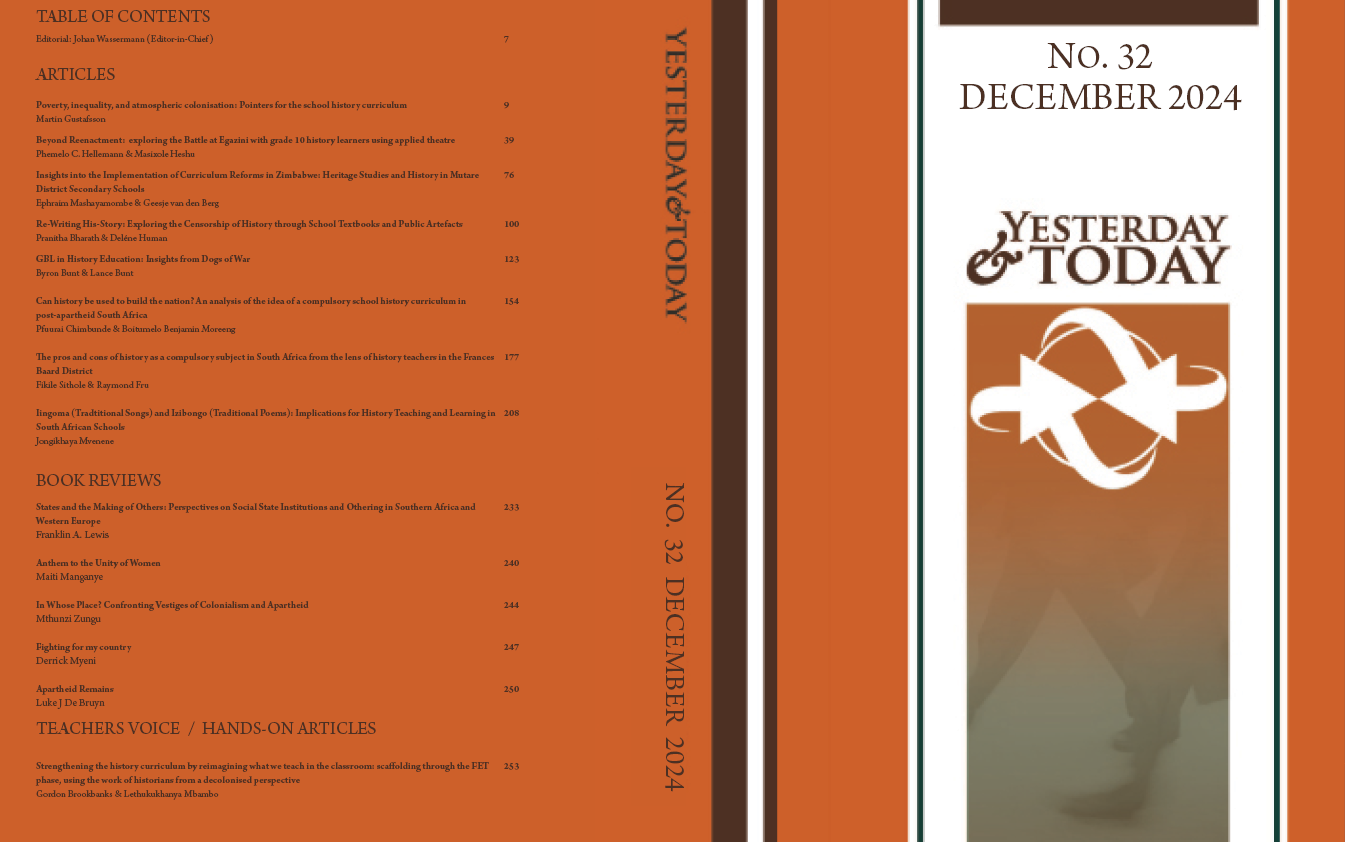GBL in History Education: Insights from Dogs of War
DOI:
https://doi.org/10.17159/2223-0386/2024/n32a6Keywords:
GBL, SDL, History education, World War 2, heuristics, Historical thinkingAbstract
Game-Based Learning (GBL) is increasingly recognised for its ability to enhance educational outcomes through interactive and immersive experiences. However, there is limited empirical data on its effectiveness in promoting historical thinking and Self-Directed Learning (SDL), particularly in history education. This study examines the impact of the Dogs of War (DoW) card game on historical thinking skills and SDL among history student teachers. It also explores the potential of GBL to enhance history teaching by fostering critical analysis skills. A qualitative research approach was employed, analysing playtest sessions with 15 history education students who played DoW. An open survey collected participants’ experiences, focusing on the game’s complexity, rule clarity, engagement level, effectiveness in conveying historical content, and stimulating interest in World War II history. The DoW game effectively increased players’ interest in historical subjects and promoted strategic thinking and problem-solving skills. While responses varied regarding the game’s complexity and rule clarity, the study identified a need for modifications to maximise educational benefits. Participants reported heightened motivation to explore World War II history further due to the game. This study highlights the importance of GBL in history education, demonstrating its potential to improve historical thinking and SDL. Balancing challenge and clarity in game rules is crucial. Further research is needed to enhance game design and implementation for better educational outcomes in history and other fields.


